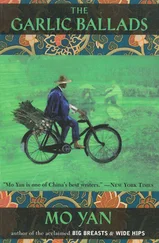In the printing workshop, Li and Dai had prepared themselves for a fight. Li stood behind the door, holding a mallet which he had found in the workshop toolbox. He would first let them come in, then club them from behind and seize a gun. Then he and Major Dai would engage them in pitched battle using any arms they were able to seize from the Japanese.
Major Dai was squatting behind a table turned on its side to face the door. He was holding a pick used to break up lumps of coal. If he and Li let two soldiers in and then shut the door on them, they could attack, the advantage (their only one) being that they would take the Japanese unawares.
Then Dai realised the import of the priests’ denial that there were Chinese soldiers in the compound.
Taking his shoes off, he said in low tones to Li: ‘Put the mallet down.’
‘Aren’t we going to put up a fight?’
‘We can’t fight. Just think about it. The moment we do, we’re proving that the Father has been sheltering soldiers.’
‘So what?’
‘So the Japs will search all the church buildings from cellar to attic, and they might even burn them to the ground. What will happen to the girls and women then?’
‘So what do we do?’
‘Take off our clothes and go to sleep. Pretend we’re civilians.’
Sergeant Major Li threw down the mallet and was just groping his way to the makeshift bed when the door was flung open and torch beams flashed around the room.
He almost picked up the mallet again.
‘They’re members of our congregation. Their house was burned down and they had nowhere to go so they sought refuge with us,’ said Father Engelmann imperturbably.
‘Out!’
The Japanese officer’s yell was translated by the interpreter in a perfect mimicry of his tone of voice.
Dai slowly got to his feet, with the grumpy air of someone whose sleep has been disturbed.
‘Hurry up!’
Dai put on Fabio’s old coat which, like the pullover he had on underneath, was obviously not his. It hung far too long and loose on him.
Sergeant Major Li was wearing an old padded coat belonging to George, which was too short, reaching only to his knees. He had one of Fabio’s hats on too. It came down over his eyebrows.
‘Who’s that?’
The torch beam settled on Wang Pusheng, lying on his makeshift bed.
‘My nephew,’ said Sergeant Major Li. ‘He’s seriously ill. He’s had a high fever for days –’
Before he had finished speaking, two soldiers dragged the boy from under his quilt. Wang Pusheng sagged insensibly between them. But his breath came hoarse and rapid, as if the rough treatment they were giving him had restored some life to his frail young body.
‘He’s only a child, and he’s seriously ill!’ Father Engelmann protested.
The soldiers paid no attention, and dragged Wang Pusheng out into the courtyard. The priest followed behind, hoping to plead the boy’s cause, when the swish of a bayonet stopped him in his tracks. Slashes appeared in his padded coat, releasing a cloud of white goose down which danced in the torchlight. Just a little deeper and the bayonet could have pierced his heart. The slash seemed intended as a warning: the bayonet was sharp enough, wasn’t it? A thrust to the heart would be just as easy. The heart was defenceless against a sharp blade like this; there was nowhere for it to hide. The bayonet challenged him, teasing his priest’s dignity. Why else should it make such a skittish gesture? However, the priest was not deterred. He continued to follow them, shouting, ‘Put him down!’
His violent movements released more goose down from his coat, and a veritable snowstorm formed in his wake.
‘For God’s sake, put him down!’
He managed to get in front of them, and they finally put Wang Pusheng on the ground, where he lay gasping desperately for breath. Father Engelmann pulled off his coat and laid it over the boy.
The Japanese officer prodded the boy with the toe of his boot and said something. The interpreter said in Chinese: ‘He’s got a bayonet wound.’
‘That’s right,’ said Father Engelmann.
‘Where did that happen?’
‘In his home.’
‘No, it happened on the execution ground. He’s an escaped POW. He was rescued and brought here.’
‘What execution ground?’ asked the priest.
‘The place where we’ve been executing Chinese POWs,’ said the officer, and the interpreter rendered his barely suppressed indignation as well as the words.
‘What? You’ve been executing Chinese POWs?’ exclaimed Father Engelmann. ‘Forgive my ignorance. I didn’t know that the Japanese Army had exempted itself from the Geneva Convention.’
The officer was momentarily silenced by Father Engelmann’s words. Then he spoke to the interpreter.
‘The officer says it’s obvious you’ve been sheltering Chinese soldiers. You can’t deny it, can you?’
‘How can they possibly be soldiers?’ exclaimed the priest, gesturing to Dai and Li.
At that moment, one of the Japanese pushed a middle-aged Chinese man forward. The interpreter said, ‘This is one of the burial team hired by the Japanese Army. He says that two POWs who weren’t killed were brought here.’ He turned to the man. ‘Do you recognise them?’
‘Of course I do!’ said the man enthusiastically. ‘He’s one,’ and he pointed at Dai.
Fabio swore violently at him. ‘You scum of the earth!’
Two of the soldiers fell on Dai and seized him by the arm. Dai submitted as they twisted his arms behind his back, although this caused an excruciating stab of pain to the wound in his left side.
Father Engelmann confronted the gravedigger. ‘You’re lying! This is the first time you’ve set eyes on this man.’
‘Are you sure you recognise him?’ asked the Japanese officer through the interpreter.
‘Does he hell!’ shouted Fabio. ‘He’s just trying to save his own skin.’
The officer ordered the two soldiers to escort Dai away. Father Engelmann tried again to intervene but the officer slapped him across the face and the priest staggered.
‘You’ve got the wrong man!’ Sergeant Major Li suddenly spoke. He was leaning on his makeshift crutch, dragging his wounded leg, but struggled to draw himself up to his full height. He turned to the gravedigger. ‘Look at me! Aren’t I the one you rescued?’
‘I never rescued anyone!’ shouted the gravedigger, panic-stricken.
‘Didn’t you say you recognised two people? Then what about me?’ said Li, cocking his thumb at himself in a ruffian-like fashion.
‘They’re both ordinary civilians!’
Engelmann knew this was his last chance to save them. Come what may, he would protect Dai. His conversations with this young soldier had drawn the pair of them close. He wanted to carry on talking to him … Then the Japanese officer balled his hand into a fist, gave an almighty swing, and Engelmann felt another stinging blow on the face.
At this point, George emerged from behind the kitchen as if he were going to wipe the blood from the priest’s nose and mouth. When the Japanese had forced their way in, George had crept towards the courtyard and ducked down behind a pile of firewood to watch. George did not believe in heroics. He would prefer a rascally life to a good death. Especially now that he and Hongling were getting on so well, a rascally life seemed to offer countless pleasures. But as he saw Father Engelmann’s coat slashed, and the priest beaten about the face, he instinctively grabbed a stick of firewood. How could these Jap scum treat the Reverend Father like this? They were not good enough to empty the Father’s chamber pot! Then he put the stick down again; there was no point tangling with twenty Japs armed with loaded rifles. He stayed crouching where he was, bolstered in his belief that it was best not risk his life, although also berating himself for disloyalty. Father Engelmann had looked after him since he was a boy of thirteen, feeding and clothing him and teaching him to read and write. He had persisted with his education even after it became clear that he was not convert material. True, the Father was rather a dull man (though that was not his fault), and did not seem fond of him, rather the reverse. In fact, the Father was more affectionate to the pony that had turned the water wheel at their well. Still, without Father Engelmann, George would have gone from being a child beggar to a grown-up beggar until finally, if luck was on his side, he died an old beggar. Without the dry-as-dust old priest, George would never have become a church cook. He could never have swaggered round with the key to the food store hanging from his waistband, and had the delectable Hongling running after him. He was thinking these thoughts when he saw the officer slap Engelmann round the head for the second time, so hard that the priest must have lost some teeth. His own teeth ached in sympathy.
Читать дальше












